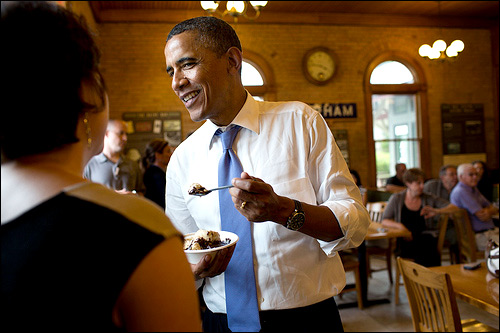By Jim Ellis
Feb. 27, 2020 — Now, just two days away from the South Carolina primary and a mere five from Super Tuesday, it’s time to again determine candidate progress for what is arguably the most important primary election day of this presidential nomination cycle.

Currently, now that the Nevada Democratic Party has ostensibly tabulated the remaining caucus preference sheets from last Saturday’s Nevada vote, the aggregate bound delegate count gives Sen. Bernie Sanders (I-VT) the lead with 45, former South Bend mayor Pete Buttigieg is second at 26, former vice president Joe Biden posts 15, Sen. Elizabeth Warren (D-MA) eight, and Minnesota Sen. Amy Klobuchar holds seven. These numbers will change significantly by this time next week. A total of 1,398 delegate votes will be bound on Super Tuesday evening and 18 states and one territory will have completed their voting process.
We’ve had some polling movement in several of the Super Tuesday states that make a tight race even closer. North Carolina, with 110 first ballot delegates, at least according to one polling firm has lapsed into a three-way tie. Spry Strategies (Feb. 21-23; 561 likely North Carolina Democratic primary voters) finds former VP Biden, ex-New York City mayor Michael Bloomberg, and Sen. Sanders locked into a three-way tie, each with 20 percent support. None of the other candidates appear close to the 15 percent delegate allocation threshold in the Tar Heel State.
The new Public Policy Polling North Carolina survey turns in similar numbers (Feb. 23-24; 852 likely North Carolina Democratic primary voters) with Biden leading Sanders and Bloomberg, 23-20-17 percent, respectively. PPP agrees with Spry in projecting that only these three men will qualify for delegates. Such a split, assuming the congressional delegation allocation yields the same ratio, would find each of the three candidates receiving approximately 35-37 first-ballot votes.
The latest YouGov poll (Feb. 6-18; 1,352 likely Texas Democratic primary voters; online) also finds a tie, but this time in the Lone Star State with again three candidates winning bound delegates. The data finds Biden and Sanders tied with 20 percent, and Sen. Warren getting into delegate contention with 17 percent. If the actual Texas votes break similarly to this ratio, it would mean Bloomberg would fail to qualify for at-large delegates, leading to a fight for delegate allocation within each of the 31 state Senate districts. While other states divide by congressional districts, Texas uses state Senate seats.




